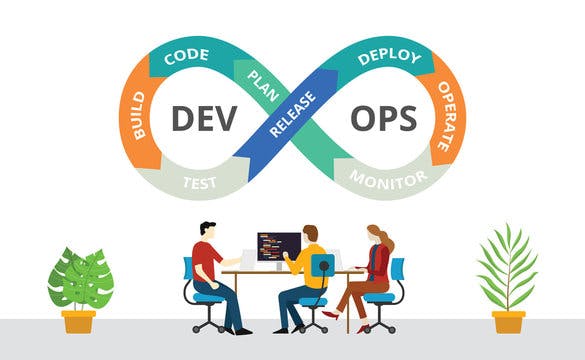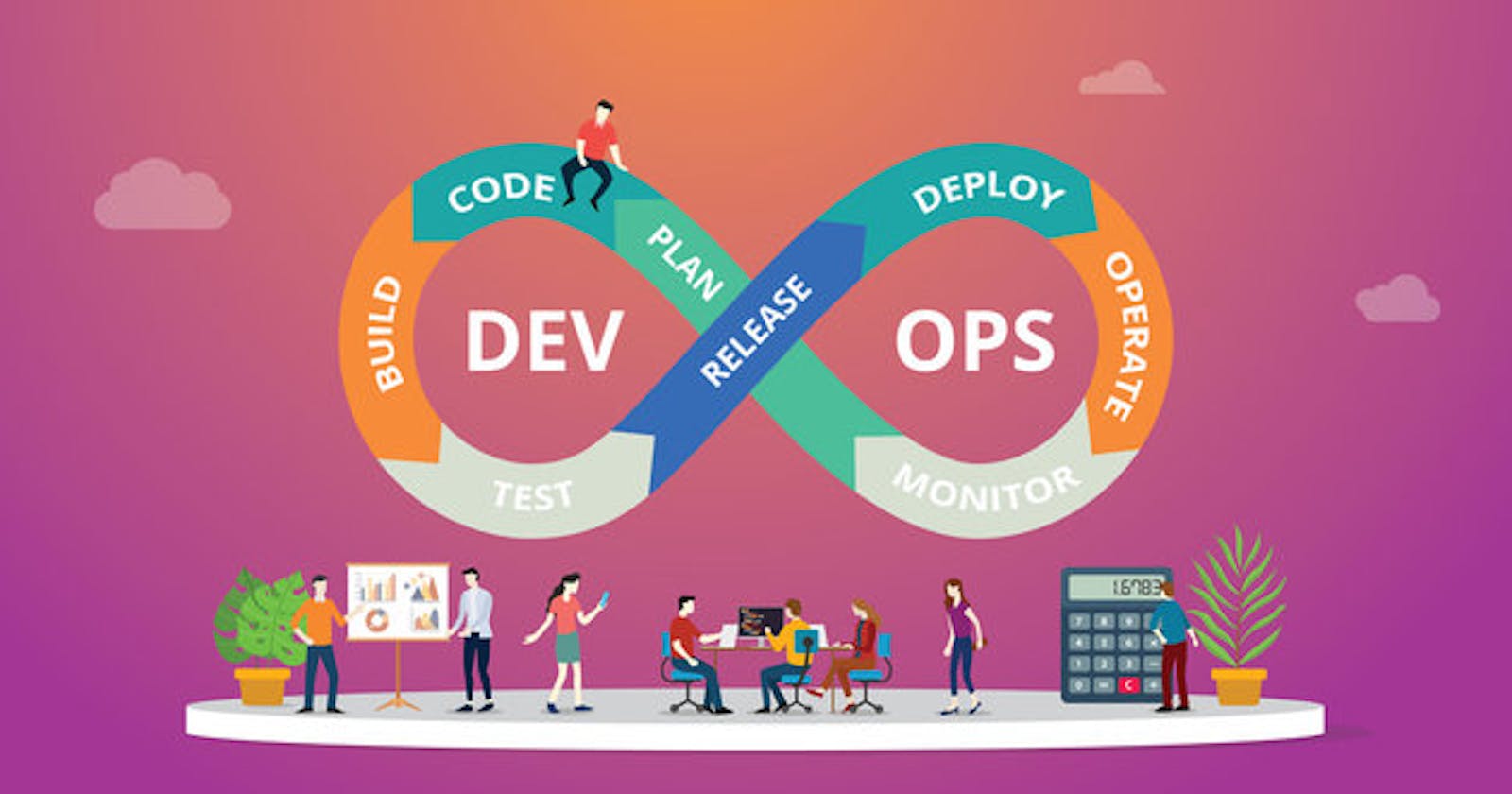The Basics of DevOps: What You Need to Know About This Growing Trend
"An Introduction to the Key Concepts and Benefits of DevOps"
DevOps is one of the hottest topics in business today. It's a movement that relies on automation and collaboration between development and operations. The goal is to increase both productivity and the quality of software. But what exactly is DevOps, and why is it so important? This blog will talk about the basics of DevOps and what you need to know about it.

What is DevOps?
DevOps is a software development philosophy that aims to bring together the traditionally separate roles of development and operations. It emphasizes collaboration and communication between these two groups, as well as the use of automation, in order to improve the speed, quality, and reliability of software delivery.
The goal of DevOps is to create a continuous delivery pipeline, in which code changes can be automatically built, tested, and deployed to production with minimal manual intervention. This allows organizations to release software updates more frequently, respond to customer needs and market changes more quickly, and reduce the risk of failures and outages.
DevOps is based on several key principles, including:
Automation: Automating as much of the software delivery process as possible, including build, test, and deployment, helps to reduce errors, speed up delivery, and free up time for more value-added work.
Collaboration: DevOps promotes collaboration between development and operations teams, as well as other stakeholders, to foster a culture of shared responsibility and continuous improvement.
Continuous integration and delivery: By continuously integrating code changes and automating the build, test, and deployment process, organizations can reduce the lead time for delivering software updates and improve the reliability of their systems.
Monitoring and measurement: DevOps relies on monitoring and measurement to identify problems and opportunities for improvement in the software delivery process, and to validate the effectiveness of changes made.
Overall, DevOps is a holistic approach to software development and delivery that aims to increase efficiency, improve quality, and accelerate time to market.
What are the Benefits of DevOps?
There are many benefits to adopting a DevOps approach to software development and delivery. Some of the key benefits include:
Improved collaboration and communication: DevOps promotes collaboration between development and operations teams, as well as other stakeholders, in order to foster a culture of shared responsibility and continuous improvement. This can help to break down silos and improve communication and collaboration across the organization.
Faster time to market: By automating the software delivery process and continuously integrating and deploying code changes, organizations can reduce the lead time for delivering software updates and bring new features and capabilities to market more quickly.
Increased efficiency and productivity: Automating manual, repetitive tasks and streamlining the software delivery process can help organizations to increase efficiency and productivity. This can free up time for more value-added work and allow teams to focus on more strategic tasks.
Improved reliability and stability: By continuously monitoring and measuring the software delivery process and making ongoing improvements, organizations can reduce the risk of failures and outages and improve the reliability and stability of their systems.
Greater customer satisfaction: By being able to release software updates more frequently and quickly respond to customer needs and market changes, organizations can improve customer satisfaction and loyalty.
Overall, the benefits of DevOps include increased efficiency, faster time to market, improved collaboration and communication, and increased reliability and stability of systems, all of which can contribute to the success of an organization.
How to Get Started with DevOps?
There are several steps that organizations can take to get started with DevOps:
Identify key stakeholders: The first step in implementing DevOps is to identify the key stakeholders who will be involved in the process. This might include developers, operations staff, quality assurance engineers, and business stakeholders.
Build a cross-functional team: It's important to build a cross-functional team that includes representation from all relevant departments and disciplines. This team will be responsible for driving the adoption of DevOps practices and working together to continuously improve the software delivery process.
Define the scope of the project: Determine the scope of the DevOps implementation, including which systems and processes will be included. It may be helpful to start with a small, focused project to get early wins and build momentum for wider adoption.
Identify automation opportunities: Automation is a key principle of DevOps, so it's important to identify areas where automation can be used to streamline the software delivery process. This might include automating build, test, and deployment processes, as well as configuration management and monitoring tasks.
Implement tools and processes: Once the scope of the project and automation opportunities have been identified, it's time to implement the necessary tools and processes to support DevOps. This might include setting up a continuous integration and delivery (CI/CD) pipeline, implementing configuration management tools, and adopting containerization technologies.
Establish a culture of continuous improvement: A key aspect of DevOps is the focus on continuous improvement. To support this, it's important to establish a culture of transparency, accountability, and continuous learning within the organization. This can be achieved through regular retrospectives, continuous feedback, and training and development opportunities.
Overall, implementing DevOps requires a holistic approach that involves building a cross-functional team, defining the scope of the project, identifying automation opportunities, implementing the necessary tools and processes, and establishing a culture of continuous improvement.
The Future of DevOps
The future of DevOps looks bright, as the demand for faster and more reliable software delivery continues to grow. Here are a few trends that are likely to shape the future of DevOps:
Increased focus on security: As the complexity and sophistication of cyber threats continue to evolve, security will become an increasingly important aspect of DevOps. This will involve not only implementing security controls and testing for vulnerabilities, but also integrating security practices into the software delivery process from the very beginning.
Greater use of artificial intelligence and machine learning: AI and machine learning technologies are becoming increasingly prevalent in the software industry, and are likely to play a larger role in DevOps in the future. For example, AI-powered tools could be used to automate testing and monitoring tasks, or to optimize the software delivery process based on data and analytics.
More widespread adoption of cloud technologies: Cloud computing has already had a significant impact on DevOps, and this trend is likely to continue in the future. Cloud platforms offer many benefits for DevOps, including on-demand scalability, reduced infrastructure costs, and ease of deployment.
Greater emphasis on culture and collaboration: While automation and technology are important aspects of DevOps, the culture and collaboration within an organization are equally critical to its success. As such, there is likely to be a greater focus on building a culture of transparency, continuous learning, and shared responsibility in the future.
Overall, the future of DevOps looks bright, with a focus on security, AI and machine learning, cloud technologies, and culture and collaboration. These trends will help organizations to continue to improve the speed, quality, and reliability of their software delivery processes, and to meet the evolving needs of their customers and stakeholders.
Conclusion
DevOps, a term that has grown in popularity in recent years, is an exciting and powerful new way of thinking about the way software is developed and maintained. DevOps is an approach to software development that combines the operations and development teams into a single unit and places a heavy emphasis on communication, automation, and collaboration. This new way of thinking can help you to deliver better software more quickly and cheaply. As the digital age continues to grow, businesses need to be more agile in order to survive. A DevOps team can help you do just that. If you are interested in learning more about DevOps and how it can benefit your business, be sure to contact us anytime at nikhilcodingblogs@gmail.com
